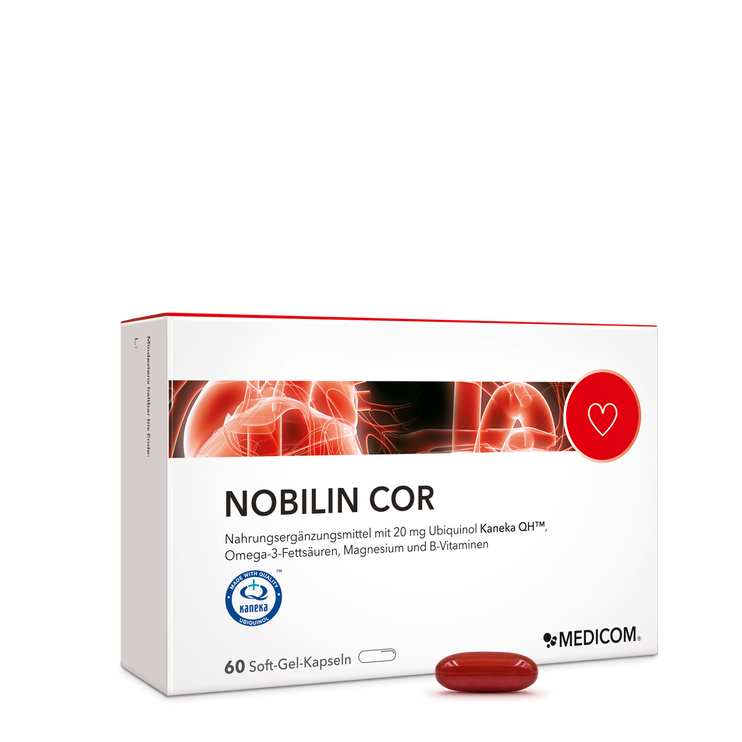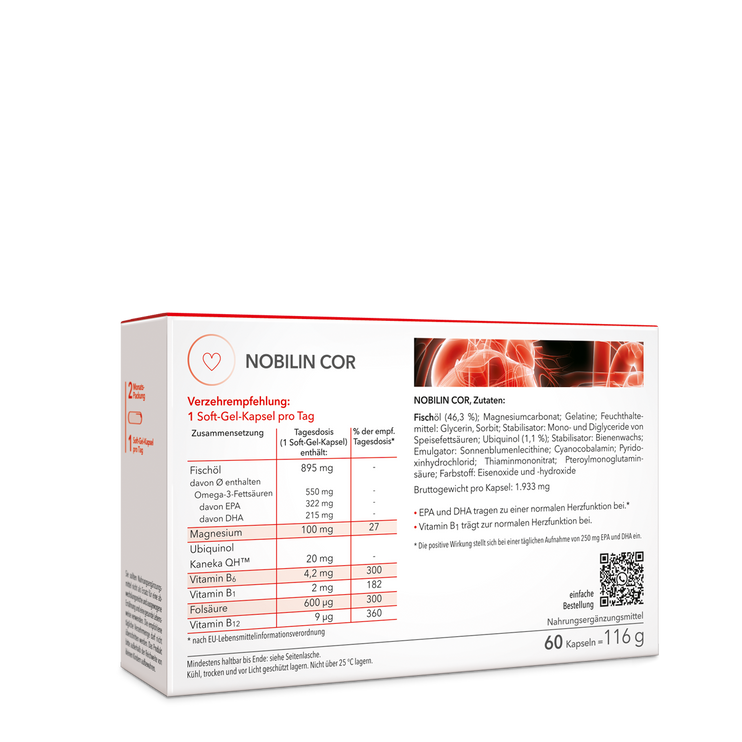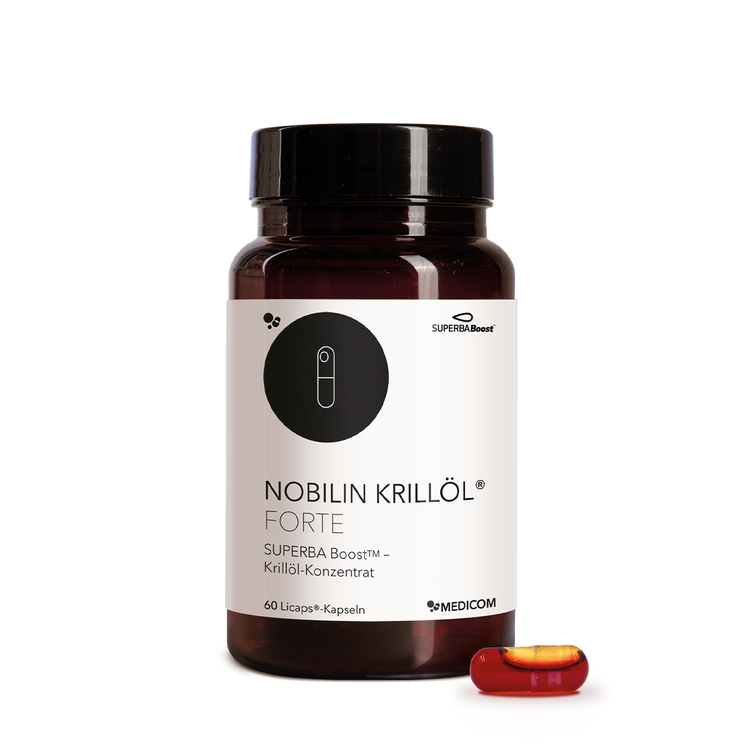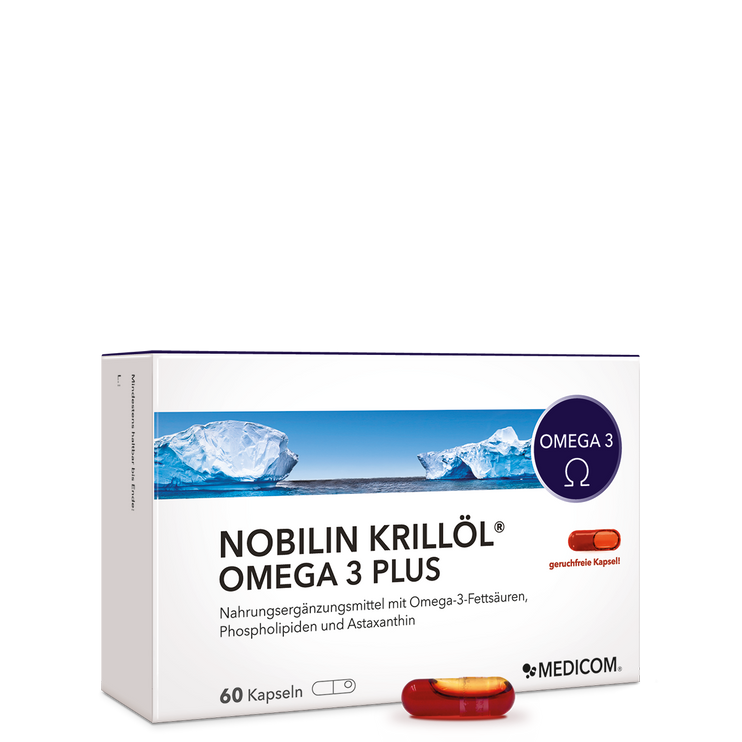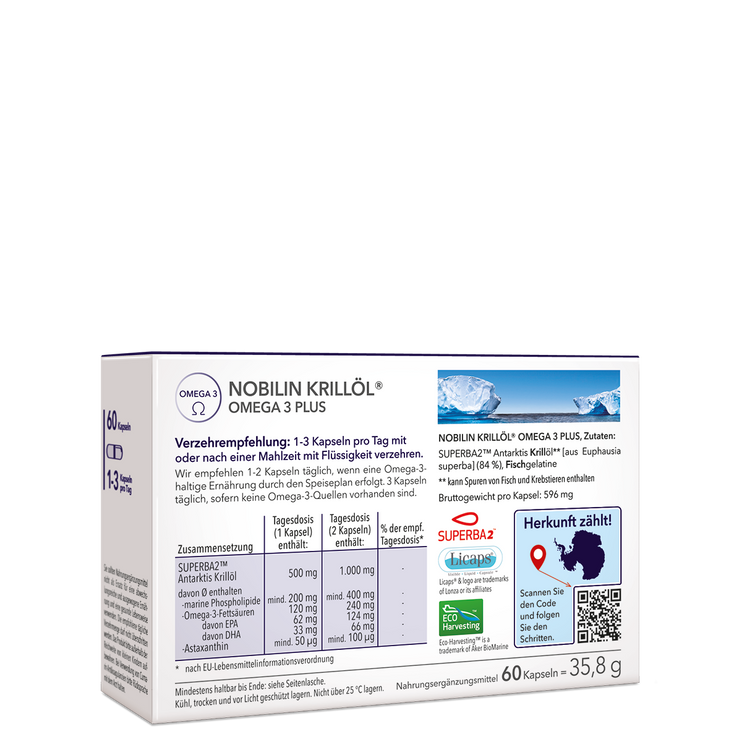Cholesterol is a vital natural substance and, at first glance, not harmful. On the contrary, cholesterolfulfills numerous tasks for the human organismThe fat-like substance, which chemically belongs to the group of alcohols, is produced both in the body and ingested through food. Cholesterol isComponent of cell membranesand for theProduction of hormonesas well as important bile acids for digestion. Cholesterol is also the building block that, under the influence of UV light, produces the vitalVitamin Dforms.
Cholesterol – an often unnoticed risk factor
Cholesterol is only of concern when it is a so-calledLDL cholesterolin excessive amounts in the blood. The affected person doesn't necessarily have to feel anything at first. Symptoms often go unnoticed even when the blood vessels show initial signs of damage. And that's what's so dangerous about it. As a result, deposits can form(Atherosclerosis or hardening of the arteries)on the walls of the arteries. The blood vessels narrow and theRisk of cardiovascular problems increases.
In healthy people, the amount of cholesterol consumed and the amount of cholesterol produced by the body is balanced. This means that if less cholesterol is absorbed through food, the body produces more, and vice versa. In people with lipid metabolism disorders, however, this mechanism isout of balanceget into trouble.
Elevated cholesterol – what are the causes?
Important blood fats, also called lipids, are cholesterol, triglycerides and phospholipids.elevated blood lipid levelscan be either genetic or the result of an unhealthy lifestyle. High cholesterol levels are caused by, among other things,Obesity, increased consumption of animal fats, smoking, alcohol consumption, unfavorable fatty acid composition, lack of exercise or diseases such as diabetes mellitus and dysfunction of the thyroid gland.
Regular check of blood lipid levels
In addition to other preventive examinations,regular blood lipid measurementare among the most important standard examinations. In this way, the doctor can determine the respective risk forCardiovascular diseaseTo do this, they must determine all relevant blood values. The relevant values include total cholesterol, "bad" LDL cholesterol, "good" HDL cholesterol, and triglycerides, which are neutral fats.
How to lower cholesterol naturally?
If your doctor detects elevated cholesterol levels, it is advisable to implement his or her recommendations. If your waist circumference is over 80 cm (for women) or over 94 cm (for men), you should change your lifestyle andReduce body weightA healthy lifestyle includes a balanced and varied diet. Medicom recommends aboutfive portions of fruit or vegetablessupplemented with fiber-rich and protein-rich foods. Use every day to exercise. Go out regularly in the fresh air and exercise.Endurance sports.
If your blood lipid levels are slightly elevated, it is advisable to ensure that you have an adequate intake ofFolic acid,Vitamin B6andVitamin B12Medicom nutritional supplements offer scientifically tested combinations of natural ingredients. The products combine essential vitamins with effective antioxidants and high-qualityMinerals and trace elements.
Good fats instead of bad fats
Choosing the right fats plays a particularly important role in cholesterol levels. "Trans fats" are created when otherwise healthy vegetable oil is industrially hydrogenated. Such "bad fats," which are often found in sweet pastries and heavily fried foods, should be eliminated from your diet and replaced with healthy fats. Choose high-quality vegetable oils such as rapeseed, olive, and sunflower oil. These consist of monounsaturated and polyunsaturated fatty acids. Trans fats are particularly beneficial for your heart health.Omega-3 fatty acidswhich are abundant in fatty sea fish such as salmon, tuna or mackerel.
Fish two to three times a week is therefore recommended. In addition, useful vital substances from Medicom such as high-qualityOmega-3 fatty acid capsules with krill oilthe nutritional support measures.



